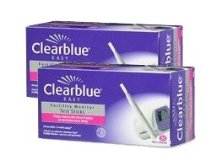 It was recently announced that the FDA and the EPA will be taking a closer look at health dangers - including infertility - linked to chemicals found in hand sanitizers, anti bacterial soaps and more! Getting Pregnant looks at the latest findings -plus a cache of powerful all natural antibacterial products that protect without fear!
It was recently announced that the FDA and the EPA will be taking a closer look at health dangers - including infertility - linked to chemicals found in hand sanitizers, anti bacterial soaps and more! Getting Pregnant looks at the latest findings -plus a cache of powerful all natural antibacterial products that protect without fear! By Colette Bouchez
If you're like most folks you’ve probably got at least one bottle of hand sanitizer in your handbag - and maybe a bathroom or kitchen sink filled with antibacterial soaps and detergents. Indeed, between the proliferation of new germs that seem to be swarming our earth, and the tainted foods that keep landing on our grocery store shelves it’s hard not to give in to the proliferation of new ways to stay germ free.
But if you’re a couple trying to conceive you need to pay special attention to some new concerns about one of the most common anti-bacterial ingredients around. It’s called triclosan - and it recently became the focus of a new FDA and Environmental Protection Agency ( EPA) review for safety concerns.
What kind of concerns?
According to the Environmental Working Group’s database of hazardous chemicals, studies on triclosan found links to cancer, allergies, immuno- toxicities, irritation of the skin, eyes and lungs.
But what’s most important for those of you trying to get pregnant is that triclosan is also connected to a host of developmental and reproductive toxicity issues - mainly because it is believed to be a "hormone disruptor” . These are chemicals that, once absorbed by the body begin to act much like a real hormone - including binding to hormone receptors in our body. This in turn "tricks" our system into believing the real hormone is present, and in doing so initiate a number of “false signals” that in turn cause other hormonal and chemical activities to occur.
* In one study recently conducted by researchers at the University of California at Davis, triclosan - and it’s chemical cousin triclocarban - were found to disrupt reproductive hormone activity and interfere with a type of cell signaling that occurs in the brain and other cells.
* In another study published in the journal Endocrinology, Dr. Bill Lasley a professor of Obstetrics and Gynecology concluded that unlike other classic endocrine disruptors which bind to cell receptors, triclocarban actually impacts that way our natural sex hormones act. This in turn appears to depress the natural production of both estrogen and androgen ( the male sex hormone) and in the process disrupt our fertility in myriad ways.
Indeed, when a hormone disruptor messes with your reproductive hormones, it can throw your entire reproductive biochemistry into a tailspin.
* Women can experience changes in the menstrual cycle and
ovulation that are dramatic enough to delay or even prevent
conception.
* Some exposures are strong enough to cause infertility or even
miscarriage - sometimes occurring at such an early stage you
might not even know you are pregnant.
* When men are exposed, sperm count may be affected , along
with sperm motility and maturity.
In fact, researching just a little deeper we find that triclosan is actually a pesticide closely related to dioxin - a known chemical health threat, endocrine disruptor, and carcinogen. According to the FDA, triclosan “could be” and is “suspected to be “ contaminated with dioxins - a chemical known to have devastating effects on fertility.
Buyer Beware: Is Triclosan Hiding In Your Home?
While the majority of the triclosan you see is found in products like hand sanitizers and antibacterial soaps, you may be surprised to discover how many products actually contain these chemicals - and don’t include it on the label.
You can, in fact, find triclosan in not only many cosmetics, but also in soaps, dishwashing detergents, toothpastes, shampoos, skin creams and moisturizers, shaving gels, kids toys, workout clothes, and socks, to name a few! ( See full product list here) . And because of this, it’s also found its way into our environment.
According to Rep. Edward J. Markey (D-Mass.), who has been pushing federal regulators to take stronger action to restrict the use of triclosan and other chemicals, “ It’s in our drinking water, it's in our rivers and as a result, it's in our bodies. . . . I don't think a lot of additional data has to be collected in order to make the simple decisions about children's toys and soaps that people use. It clearly is something that creates a danger,” he recently told The Washington Post.
Indeed, the exposure to triclosan is now so great that the US Centers for Disease Control and Prevention report that residues are showing up in the urine of 75% of Americans.
That said, Brian Sansoni of the Soap and Detergent Association,which represents the 30 billion US cleaning products industry recently said in an interview that concerns about triclosan are unfounded.
In a quote to the Washington Post he added " These products and ingredients have been reviewed, regulated and researched for decades," and he added that " science strongly supports the safety and efficacy of these products." He also said that the time was not only right for these products, but that they were necessary to protect us in a time of increased threats from disease.
Kinder, Gentler, Anti Bacterial Protection: It's Here Now!
Currently, The European Union classifies triclosan as dangerous to the environment while both the Canadian and Japanese governments have banned its use in cosmetics. In the United States, both the FDA and the EPA have agreed to take a second, much harder look at triclosan, including whether or not it could be causing reproductive harm.
But as anyone who has ever waited for a government report can tell you, answers are not likely to affect what’s on supermarket shelves any time soon.
So what’s a couple trying to conceive to do in the meantime ?
First, remember that studies also show that vigorous hand washing for 20 seconds or more with regular old soap and hot water will go a long way in wiping out most germs destined to do us in.
But if you’re looking for an extra edge of protection,

there are kinder, safer natural antibacterial products
available! Among the best choices are products
manufactured by Cleanwell - an entire company
that is devote to killing germs on contact,
with no harmful chemicals!
To that Cleanwell products rely on a combination of the natural herbal antibacterial known as thyme, in conjunction with a series of essential oils to to provide the same (or better) protection as triclosan, without the inherent dangers.
Moreover, these same oils have been shown in independentclaboratory studies to kill the “ bad” bacteria ( including MRSA, salmonella and E-coli) without destroying the “good” bacteria on skin that is designed to keep us healthy.
According to Dr. Larry Weiss, the medical director of CleanWell, “ The good bacteria on our hands and skin helps us stay healthy by protecting against bad germs we’re exposed to through contact; that’s why it’s important to choose soaps and hand sanitizers that help your body maintain a healthy balance of bacteria.”
But Cleanwell is not alone on the store shelves. Companies such as DEFENSE manufacture an all natural antibacterial soap that uses a combination of tea tree oil and oil of Eucalyptus to fight bacteria associated with MRSA, ringworm, staph, impetigo, herpes, jock itch and athletes foot.
 California Baby offers a natural antibacterial wash for both children and adults that relies on lemon, tea tree oil and ravensara for natural antibacterial properties along with a recommendation to “vigorously “ wash your hands for 20 seconds or more for the best protection.
California Baby offers a natural antibacterial wash for both children and adults that relies on lemon, tea tree oil and ravensara for natural antibacterial properties along with a recommendation to “vigorously “ wash your hands for 20 seconds or more for the best protection.And that's just the beginning of what you will find . Indeed, if take some time to visit stores featuring natural or organic products you’ll find a nice selection of natural products that can help protect you from germs without compromising your fertility. Most companies also make their products available online so a little Googling can’t hurt either!
While it’s clear we can’t completely avoid triclosan and other chemicals that can impact our fertility, the more we can reduce our exposures through better product choices, the less likely we are to experience problems.
For more information on how to find the hidden triclosan in your personal care and home products click here. For the latest advice and information on getting pregnant fast be sure to visit GettingPregnantNow.org - The Trusted Fertility Source For Over 20 Years!
Copyright by ElleMedia 201o- All Rights Reserved.In addition to US Copyright, the text of this FERTILITY BLOG is licensed under a Creative Commons Attribution 3.0 License. All Formatting and style elements of this page are not available under this license and Colette Bouchez retains all rights in those elements.










Truly we are surrounded by chemicals whose effects on our bodies are only vaguely understood. Skin care products are tested - naturally enough - for any adverse effects on the skin, but what kind of test could possibly be devised to test their effect upon every system?
ReplyDeleteFertility Blend